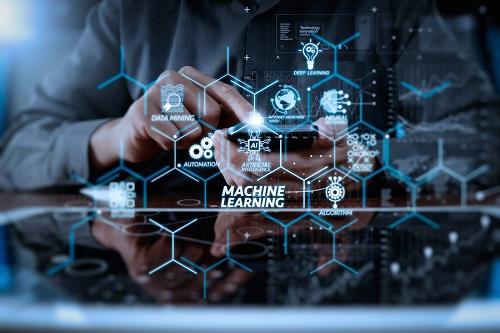Machine Learning as a Service (MLaaS): Unlocking the Power of AI for Businesses

What is Machine Learning as a Service (MLaaS)?
Machine Learning as a Service or MLaaS refers to a cloud service model where machine learning models are developed by service providers and made accessible to customers via application programming interfaces (APIs). These APIs are used by customers to build machine learning-powered applications and integrate ML capabilities into their existing solutions without having to build their own models ordeal with complex infrastructure and resource requirements.
Key Benefits of MLaaS
Lack of in-house expertise: MLaaS helps businesses leverage AI capabilities without having to hire data scientists and machine learning engineers. Service providers take care of model development, tuning and deployment which requires specialized skills not available with many organizations.
No infrastructure costs: Developing and training machine learning models requires huge computational power and data storage capabilities. MLaaS removes the need for costly infrastructure investments by offering machine learning as an on-demand cloud service. Customers pay only for what they use on a pay-as-you-go pricing model.
Focus on core business: By outsourcing machine learning requirements to service providers, businesses can focus their resources on core competencies instead of diverting efforts to AI. MLaaS handles all technical complexities allowing customers to quickly embed intelligence into products and services.
Access to advanced models: Leading MLaaS platforms maintain large model catalogs trained on diverse domains and massive datasets. This gives customers access to sophisticated, pre-trained deep learning models that would have been impossible for most organizations to develop independently.
Easy integration and scalability: Well-documented APIs simplify the process of integrating ML capabilities. The cloud-native nature also enables automatic scaling of models to handle varying data and query volumes without performance issues.
Popular Applications of Machine Learning as a Service (MLaaS)
Image recognition: Computer vision APIs trained on huge image repositories can perform tasks like detecting objects, faces, text etc. This allows applications to gain image understanding capabilities. Examples include automatic photo tagging, visual product search etc.
Natural language processing: NLP models developed using massive text corpora power features like sentiment analysis, summarization, translation and more. Chatbots, customer support systems widely use MLaaS NLP services.
Data labeling: To train their own models, organizations need large volumes of annotated datasets which takes a long time to compile. Machine Learning As A Service (Mlaas) fills this gap by offering on-demand, high-quality data labeling services using human annotators as well as automated techniques.
Predictive analytics: Pre-built regression and forecasting models in MLaaS platforms can address challenges in areas like sales forecasting, demand planning, predictive maintenance by analyzing historical patterns in customer behavior and operational metrics.
Customer service automation: Virtual agents, intelligent routing and automated answers to common queries are becoming mainstream through MLaaS. Automatic text summarization and text generation also aid knowledge bases of customer support chatbots and virtual assistants.
Fraud detection: Machine learning excels at anomaly detection and risks assessment by profiling patterns in user activities, transactions or network behaviors. Anti-money laundering, credit card fraud prevention widely leverage such pre-trained fraud detection models from MLaaS providers.
Top MLaaS Platforms
Leaders in the MLaaS domain maintain rich pre-trained model marketplaces covering domains like computer vision, NLP, forecasting, tabular data as well as general-purpose deep learning frameworks. Here are a few top players:
- AWS - offers a wide range of AI services including forecasting (SageMaker), computer vision (Rekognition, Textract), language (Comprehend, Lex, Polly), analytics (DeepLens) and general deep learning.
- Microsoft Azure - provides Cognitive Services like Anthropic (NLP), Computer Vision, Form Recognizer and general deep learning via Azure ML Studio. It also has domain-specific accelerators.
- Google Cloud - hosts TensorFlow, AutoML Vision and Natural Language APIs as well as vertically integrated solutions like Cloud Translation, Cloud Video Intelligence etc.
- Anthropic - focuses on conversational AI and NLP tasks with offerings such as Constitutional AI, Pathmind etc.
- H2O.ai - a popular framework for automated machine learning, forecasting, data preprocessing and general deep learning via Driverless AI.
- DataRobot - automated machine learning platform used for predictive analytics, forecasting and computer vision interfaces.
- Clarifai - specializes in visual recognition APIs trained on massive ImageNet dataset. Its computer vision models are used across many industries.
The Emerging Landscape
The global MLaaS market stood at around $1.5 billion in 2021 and is projected to grow at over 30% CAGR to surpass $10 billion by 2027 according to credible estimates. This massive growth reflects the widespread realization of how machine learning can transform operations, product design and customer experience across industries.
While computer vision, NLP and tabular predictive models dominate today's MLaaS offerings, the scope is continuously expanding into newer verticals like fraud prevention, vulnerability detection, customer churn analytics among others. Edge computing use cases are also gaining ground with deployments of pre-trained ML models at client premise for speed and data security.
the convergence of MLaaS and low-code/no-code platforms further simplifies the process of embedding intelligence, allowing non-technical teams to benefit as well. Overall, machine learning as a service has emerged as the predominant model for democratizing AI capabilities and making them accessible to businesses of all sizes globally.
Get more insights on – Machine Learning As A Service (Mlaas)
About Author:
Ravina Pandya, Content Writer, has a strong foothold in the market research industry. She specializes in writing well-researched articles from different industries, including food and beverages, information and technology, healthcare, chemical and materials, etc. (https://www.linkedin.com/in/ravina-pandya-1a3984191)
- Art
- Causes
- Crafts
- Dance
- Drinks
- Film
- Fitness
- Food
- الألعاب
- Gardening
- Health
- الرئيسية
- Literature
- Music
- Networking
- أخرى
- Party
- Religion
- Shopping
- Sports
- Theater
- Wellness


